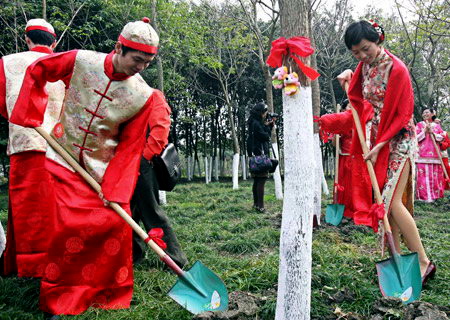| Home > Living in China > Kungfu |
The Road to the Olympic Games for Wushu
Wushu, also called kungfu, martial arts, is attracting more and more fans both home and abroad as a traditional Chinese sport. With Kungfu Panda sweeping across the world, wushu is becoming a more popular sport. Although it failed in its bid to be included as a 2008 Olympic event, it still appeared at the Beijing Olympic stadium as a special event.
The event “Beijing 2008 Wushu Competition?was co-organized by The Beijing Organizing Committee for the Games of the XXIX Olympiad (BOCOG), International Wushu Federation (IWF) and Chinese Wushu Association, attracting 128 athletes from 43 countries to compete for 15 gold medals.
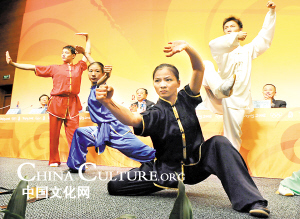
As a sports event, Wushu is developed well in Asia; it has been listed as the event of Asian Games since 1990, but it still has a long way to go for its application as an Olympic event.
With a history of several thousand years in China, Wushu is an important part of Chinese culture. It is enriched by various styles and loved by people from different cultural backgrounds since it as a competitive and healthy sport that plays an important role in nurturing the moral character of youth.
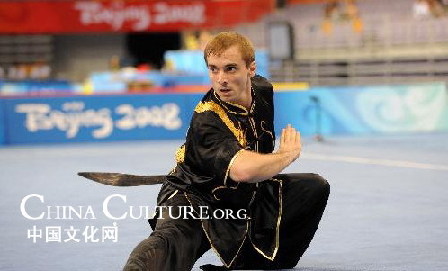
According to incomplete statistics, there are nearly 200 million people around the world practicing Wushu. Founded in 1990 the International Wushu Federation has members spreading across five continents, nearly 120 countries and regions and it was officially recognized by the International Olympic committee in 2002. The international Wushu tournament has been held six times biennially by the IWF since 1991.
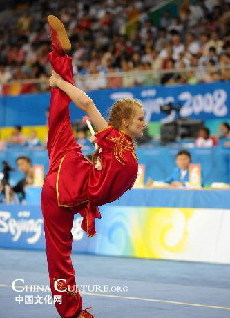
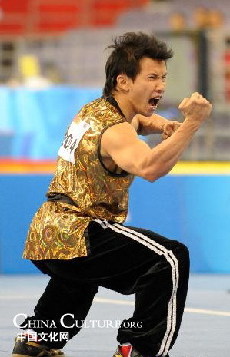
If a sport wants to be the Olympic event it must apply to the International Olympic Committee 7 years ahead. To meet the standards of application the sport should have associations in at least 75 countries or regions, offering fair rules for competition and judgment and without sexual discrimination, which just coincide with Wushu’s characteristics. But the standards also set requirements for the coverage area of TV live broadcast, the ticket revenue and the sponsors. Further, the International Olympic Committee is simplifying the Olympic events; the London Olympic events have been reduced from 28 to 26.
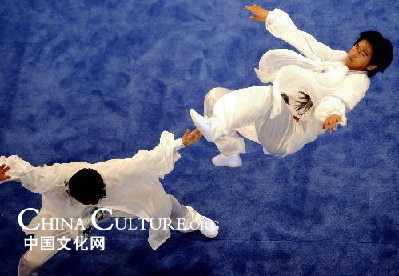
Actually, Wushu is just a general name for 130 schools of boxing and other styles of martial art. Since different school has different competitive rules it is hard to judge in terms of quantized standards.
Also at present, Wushu isn’t very popular in most countries and regions. More specifically Wushu is an indefinite notion in China, which not only includes competitive ideas but also the traditional elements such as Confucianism, philosophy and health preservation. Most foreigners have no idea about Wushu; they just unconsciously relate it with the Kungfu stars Bruce Lee and Jacky Chan, but actually Wushu is not just fighting. Due to the rarity of books about Wushu, it is usually taught by word and deed and costs a couple of years to train the basic movements, which easily make the students give up halfway.
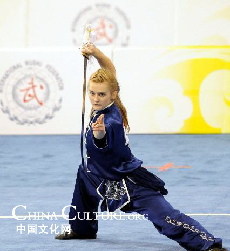
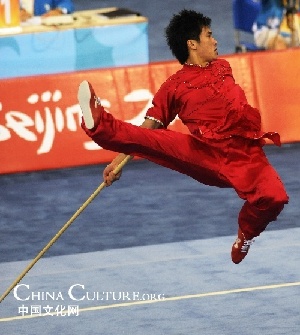
All of these make Wushu a tough task for application.
Maybe we should learn from Tae kwon Do (kickboxing) which ranked as Olympic event in 2000 Sydney Olympic Games. After 1996 Asian Olympic Games, the Republic of Korea began to promote Tae Kwon Do to the world by the means of free teaching. Now, there are about 100000 Korean coaches around the world. To popularize this national event, Tea Kwon Do was listed as a compulsory course from primary school to University. If a student won the national champion, he or she can even enter the college without the entrance examination.
Wushu also can be introduced into Chinese schools for wide promotion. Except special courses, teaching books should play an important role in popularizing Wushu to the world
Standard and integrative rules for competition and judgment should be set to fit international competitions.
Professional athletes and referees are badly needed in the development of Wushu. With effective management and the backup of funds, the road to the Olympic Games for Wushu may be rocky but still promising.
Art
 more
moreThe Dawn Breaks
(the prehistoric period - the 16th century BC) Ancient documents

2008 World Craft Council General
The 16th WCC General Assembly was held in China’s southern city of

Traditional wooden movable
Villagers print the book of the Chen's family tree
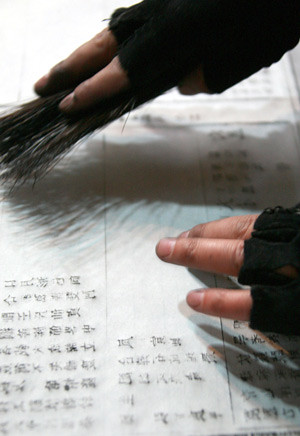
Customs
 more
moreChinese Kungfu
Everybody was kungfu fighting
Niels Tsai, a kungfu enthusiast from Malaysia, was halfway up misty
Tai chi helps cut pain of knee arthritis
The traditional Chinese form of exercise known as tai chi can help
Kungfu Taste: Learn Martial Art in Shaolin Temple
The mention of Shaolin Temple conjures up images of a quiet and




 print
print  email
email  Favorite
Favorite  Transtlate
Transtlate 